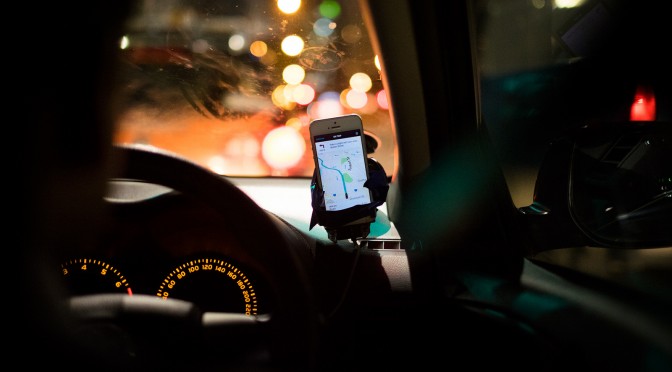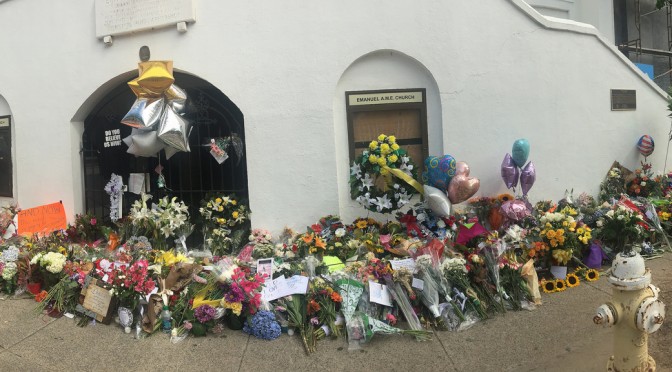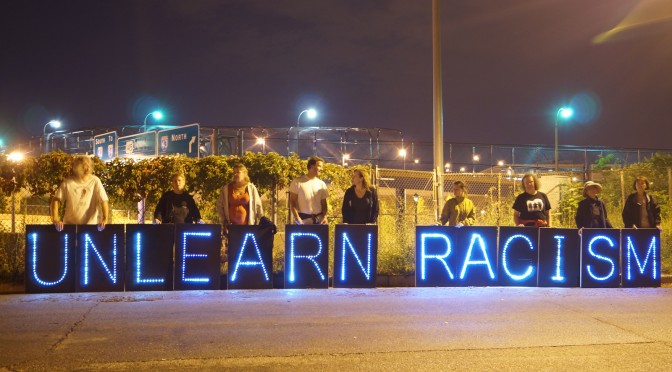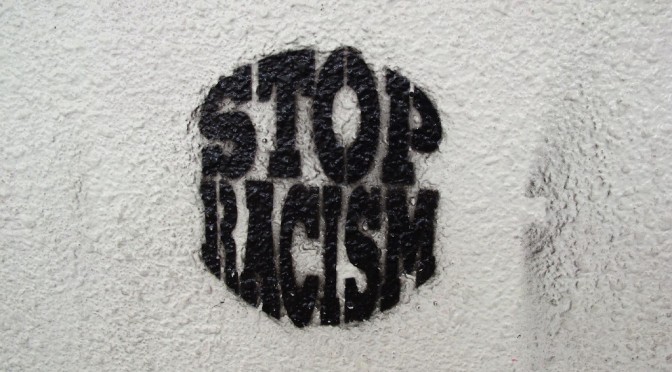What a couple of weeks. Civil rights tragedies and victories, both. Marriage equality, a supreme court upholding of the Affordable Care Act, direct action against the confederate flag. In the wake of the South Carolina tragedy, we want to celebrate and mourn, both. And yet, we can’t help sense the march of progress moving inexorably forward. In brief:
- Tired of waiting for the South Carolina State Representatives to get with the program, activist Bree Newsome (she of #freebree) took direct action by climbing the flag pole in front of the State House to take the confederate flag down.
- The Supreme Court’s been an active one. In addition to same-sex marriage becoming the law of the land, sections of the Affordable Care Act have been further upheld. In less uplifting news, the EPA’s limits on power plant emissions were deemed to be in violation of the Clean Air Act, and states have been given latitude to use questionable drugs in executions. Still coming up: Friedrichs v. California Teachers Association, a high-stakes case that could transform public sector unions for the worse.
- Over at Al Jazeera, Amy B. Dean draws connections between the labor movement and #BlackLivesMatter, asking: Is the fight for $15 the next civil rights movement?
- Despite earlier setbacks and a strong opposition, after a 60-38 Senate vote in favor of the TPA, President Obama signed the bill into law — granting himself fast track authority to negotiate the forthcoming (and persistently opaque) Trans-Pacific Partnership trade agreement.
- In These Times ran an interview by David Moberg of exiting CWA President Larry Cohen about the past and future of the labor movement. According to Cohen, “If labor is going to be just a group of unions with different strategies, it’s not going to be a movement. We need to be organizing other people.”
- In a welcome act of common sense and dignity, New York City is banning “poor doors” — that is, developers will no longer be allowed to built separate entrances for rich and poor tenants in buildings constructed using tax breaks granted in exchange for low-income units.
- Janitors from eight companies across the Twin Cities, representing 50 retail locations, participated in a one-day strike on July 1st, raising the profile of organizing efforts within the difficult-to-organize cleaning sector.
- NYC is set to receive expanded wi-fi coverage with the arrival of LinkNYC, which will turn converted pay phones into wireless hubs. Three cheers for digital access and connectivity! The downside? This means the arrival of “tall, thin pillars with digital tablet interfaces and large ads slapped on the sides.” So long to the psychic environment. We hardly knew ye.
- It’s anybody’s guess what’s going to happen in Greece and Puerto Rico in the face of un-payable national debts. Stay tuned.








